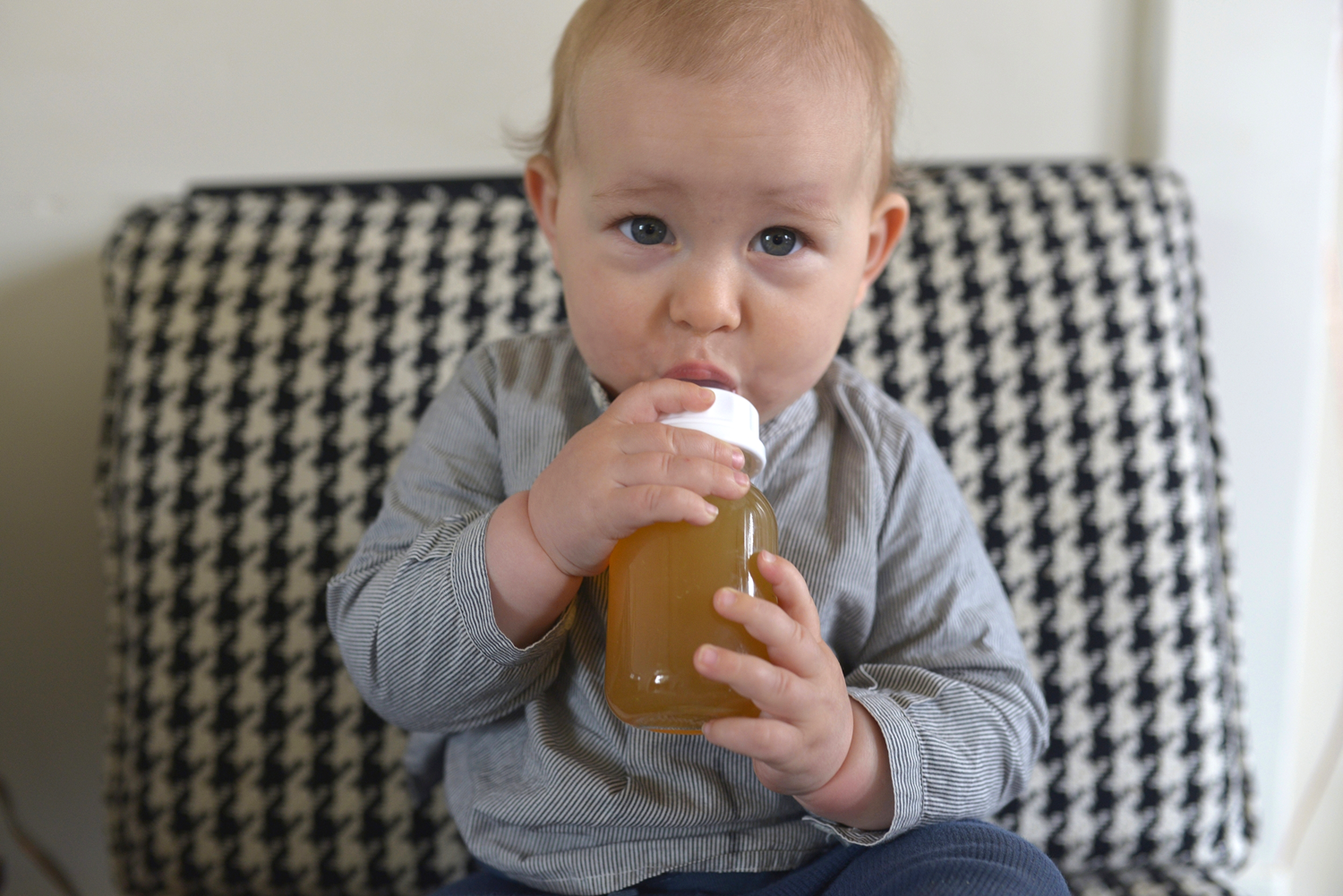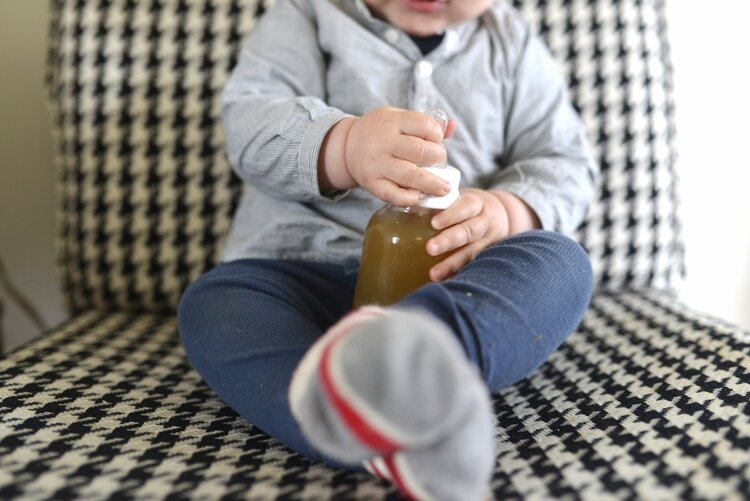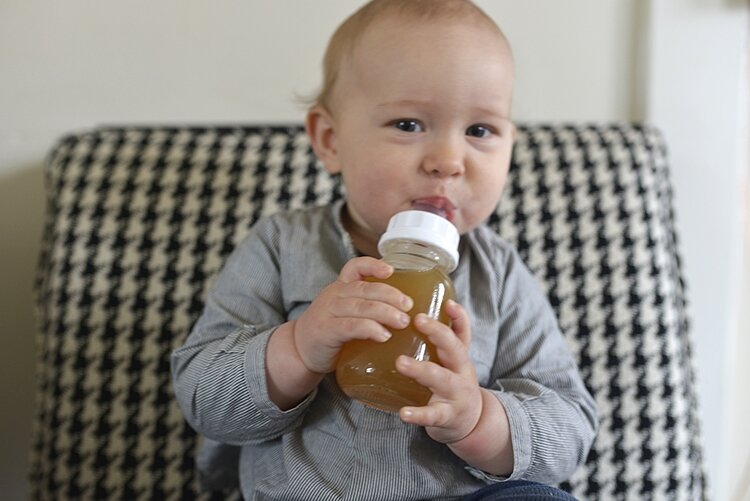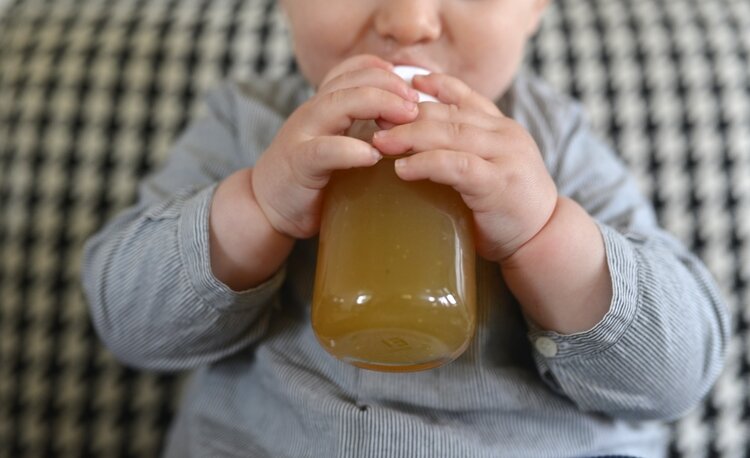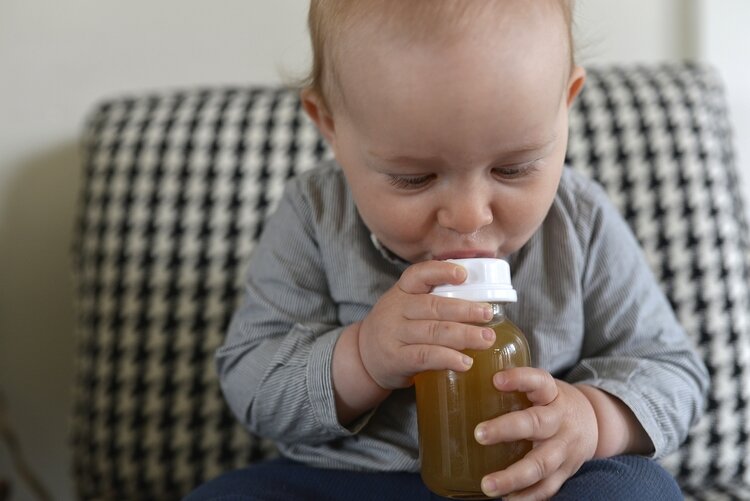Bone Broth for Babies
I’ve already written about the incredible benefits of consuming traditional bone broth during pregnancy, but this nutrient dense liquid is also amazing for babies!
Unlike store bought broth or stock, which is cooked for only 45 minutes to 4 hours, bone broth is simmered for quite a long time. As the broth simmers, nutrients leach from the bones, leaving you with a wonderfully nourishing and flavorful liquid.
Help broaden baby's palate
Breast milk (and formula) are quite sweet, so offering this nutrient dense savory beverage helps to diversify your baby’s palate.
Strengthen growing bones & teeth
Bone broth is rich in an easily digested and assimilated form of calcium & magnesium, which are essential for your baby to build strong, healthy bones and teeth.
Helps build connective tissue & joints
Bone broth contains glucosamine and chondroitin, which are among two of the most important nutrients for joint care and will assist in the development of your baby’s joints.
Bone broth is also a great source of hard to find nutrients gelatin and collagen, which are key in building and supporting connective tissue. These nutrients also aid in building cartilage and bone. If your broth gels when cooled, this is why. Just lightly reheat before serving.
Reduces the risk of allergies
Another wonderful benefit of collagen is its ability to strengthen the intestinal lining, which greatly reduces the risk of allergies and food sensitivities.
Supports immunity & digestion
The specific amino acids in bone broth perform a wide variety of functions including boosting the immune system and improving digestion.
When and how much
Bone broth can be given in small amounts as soon as baby has been introduced to solids. As with all liquids, the goal isn't to replace breast milk with broth in young babies, so offer broth as an addition to breast milk and solid foods, and be sure that broth isn’t filling baby up.
As baby begins to consume more solid foods, the amount of breast milk they consume will naturally decrease. At this time they can be given more broth, but again as with all liquids, still watch that it is in addition to solids and not replacing them.
Is cow’s milk necessary?
When babies are weaned from breast milk or formula they are often given pasteurized cow’s milk, which can be very hard to digest and highly allergenic. The pasteurization of milk kills lactase (the enzyme which helps with the digestion of lactose), denatures proteins and damages fats. If you are mindful that baby’s diet is high in calcium rich foods, cow’s milk is not a necessary addition and it can actually be problematic for many little ones: leading to eczema, ear infections, gastrointestinal discomfort, and an increased frequency of colds.
Bone broth for babies
This is a no-salt added, or sodium reduced version of my traditional bone broth recipe and it’s great for young babies. As they consume more food and less breast milk, the sodium in this recipe can be increased slightly, if desired. If adults are enjoying this broth as well, add additional salt to taste when consuming.
What you'll need:
Slow cooker or large stock pot
Fine strainer
Ingredients:
2 pounds (or more) of bones *As with all animal products, I suggest trying to use the highest quality possible, especially when giving to babies.
2 carrots
2 stalks of celery
1 onion
1/4 cup apple cider vinegar
1/2-1 tablespoon of unrefined sea salt (optional for toddlers)
1 teaspoon peppercorns
Optional: any other vegetables and/or herbs/seasonings you like
For an even more calcium rich broth, include vegetables such as turnip greens, leeks, green onions & additional celery.
* If using raw bones: roast bones for 30 minutes at 350°F to improve final taste.
Place bones in slow cooker or a large stock pot. Cover the bones with cool water until bones are submerged and add apple cider vinegar. Let sit for 20-30 minutes. (The acid helps leach the minerals from the bones.) Rough chop vegetables and add to the pot with the pepper, spices, or herbs you are using, and optional salt for toddlers. Bring the broth to a boil, then reduce to a simmer. Watch the broth for the first 2 hours for a film that floats to the surface. Remove this with a large spoon.
Recommended simmering times (don’t be afraid to cook for longer):
Beef/Bison/Lamb/Pork broth: 48 hours
Poultry broth: 24 hours
Remove from heat and use a fine metal strainer to remove all the remaining pieces of bone and vegetable. Broth can be kept in the fridge for up to 5 days, or freeze for later use. Once chilled a layer of fat may form on the top which can be skimmed off with a spoon or spatula.
Sip for nourishment, or use when cooking veggies or making purees.

